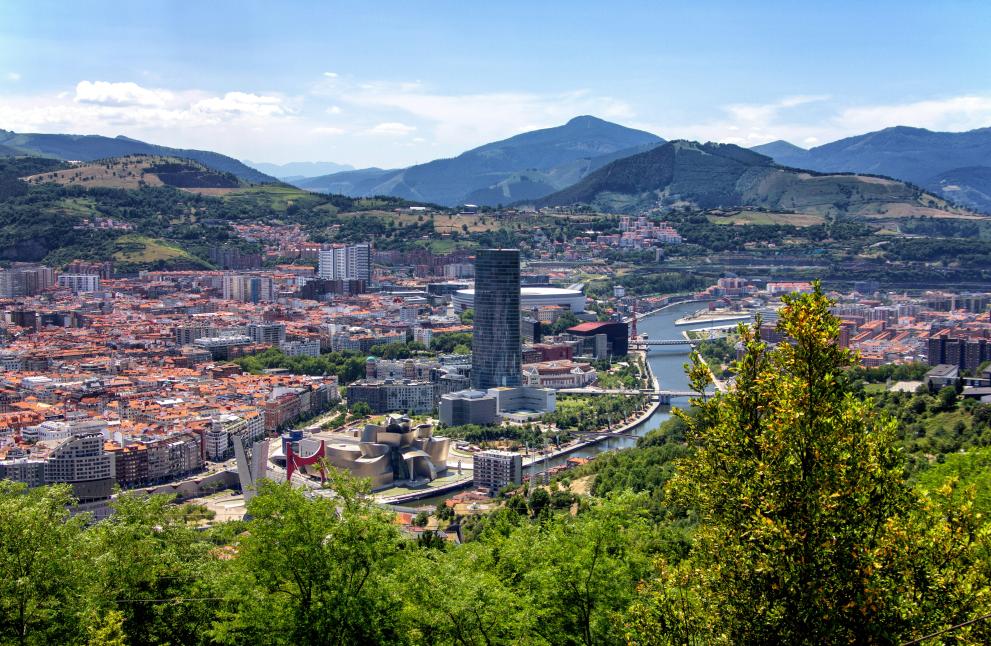
Over the last few decades, Bilbao has transformed from a polluted industrial centre into a dynamic service-focused city. Now, it is embracing a new energy strategy to significantly reduce greenhouse gas emissions with the aim of reaching climate neutrality by 2050.
The city has included sustainability and energy-efficiency criteria in its ongoing transformation through the Bilbao Environmental Strategy 2050. Efforts were strengthened with the successful implementation of its Sustainable Energy Action Plan (SEAP), initiated in 2012, exceeding the goal of reducing CO2 emissions by 20% by 2020.
The city is now advancing its efforts under its Sustainable Energy and Climate Action Plan 2030 (SECAP), with the aim of reducing GHG emissions by 55%.
A strategy for decarbonised heating
Since nearly half of Bilbao’s energy consumption comes from buildings, addressing their energy inefficiency is critical. The building sector was responsible for 33% of CO2 emissions in 2018, and many buildings do not meet high energy-efficiency standards. Hence why the city of Bilbao is prioritising building upgrades, especially in areas where district heating networks can significantly contribute to decarbonising the urban landscape.
To achieve this goal, the city participated in the Decarb City Pipes 2050 project, to draw up a strategic Heating and Cooling (H/C) 2050 Plan, supported by the creation of a Transition Roadmap.
The Heating and Cooling 2050 Plan
Bilbao’s Heating and Cooling Plan was developed around the city’s vision of a fully electrified heating and cooling system by 2050. It entails a comprehensive transformation, aimed at replacing fossil fuel combustion systems with electrically driven heat sources and promoting low-temperature heating and cooling networks in various areas.
By 2050, the overall demand for space heating is expected to be reduced by 20–30% with demand for hot water becoming the main end-use of heat, while cooling demand is expected to increase due to climate change and building insulation levels.
Read the full story and find out more about Bilbao's decarbonisation strategy
Available in English and in Spanish in our library!
Pojedinosti
- Datum objave
- 12 April 2024
